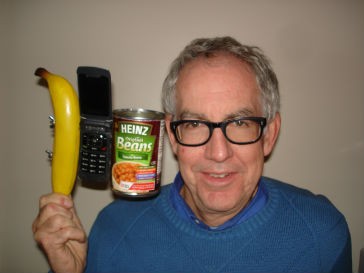Waste Diversion: the least expensive, quickest and easiest means of achieving sustainability

Efforts in sustainability. Did you know the budgets for both the Canada Line in Vancouver and the Eglington Crosstown Subway in Toronto are over $5,000 per household and still require a $3-$4 fare for one person to ride one-way. Did you know a new Prius costs close to $20,000 and that to date, worldwide, only 5 million have been sold ? Did you know a new high efficiency heating and cooling system costs $10,000 and it will take decades to retrofit every North American home?
Imagine if there were an inexpensive, quick and easy means of achieving sustainability.
Imagine no more; it's waste diversion.
Waste diversion programs can be introduced and/or enhanced at a fraction of the cost and in a fraction of the time of most, if not all, other actions residents are being asked to take to reduce their environmental footprint.
While it's of course clear that we burn fossil fuels to power our cars and to heat, light and cool our homes, it's perhaps not so apparent the vast amounts of energy we consume just to make the products and packaging we all too quickly use, then throw away, and in doing so discard the energy embodied in the production of that item. The fact is we use more energy to produce the goods we consume, then all to quickly bury or burn, than we use by driving and through home energy consumption combined!
In addition, the harvesting of resources; wood, metals and minerals, and those which are derived from petroleum, naturally leads to their depletion. Furthermore, there are as we all know too well, highly detrimental effects on our land, air and water as a result of the multitude of production processes used to turn these raw materials into finished goods
Clearly this situation is unsustainable.
The means of increasing waste diversion are simple and begin with an understanding of the composition of our discards. 40% of the waste from a home is perfectly good recyclable material comprised mostly of containers and paper fibers. Yet we fail to capture much of this material -- worth millions of dollars and thousands of jobs. As a first step we need to maximize the use of existing recycling systems.
The primary benefits are that the mix of containers and fibers collected can be made from recycled material using 2/3's less energy than if prime (virgin) resources were used, and no new virgin resources are consumed. Specifically, the energy in all of a home's paper fiber contains the equivalent of three months of heating or cooling, plus an additional 250 miles of gasoline, all of which is lost if not recycled. More specifically, the energy in a single pop can could power a TV or computer for three hours.
In terms of behavior change, to accomplish all of these amazing results requires only one action by residents; that is to keep items separate at the time of discard. What could be easier? After all you purchased a can of beans separately, a banana separately and a cell phone separately. You consumed each of these items separately and at one point in time you held each of these items separately in your hand. All we are asking residents to do is to keep them separate at the time of discard.
I use the prop shown in the photo (above) to communicate this idea; that you didn't buy things all together so why would you dispose of them in this way?
In closing, I do confess there are challenges, but also honestly believe residents want to do more. Especially when they come to understand that waste diversion is in reality the cheapest, quickest and easiest means of achieving sustainability, they'll jump at the opportunity to divert more.
Rod Muir, Hons B. Comm., MBA, is the Waste Diversion and Sustainability Campaigner for Sierra Club Canada. He is very willing to talk to any Group on subject of sustainability through waste diversion and can be reached at [email protected] or 416.535.9918



